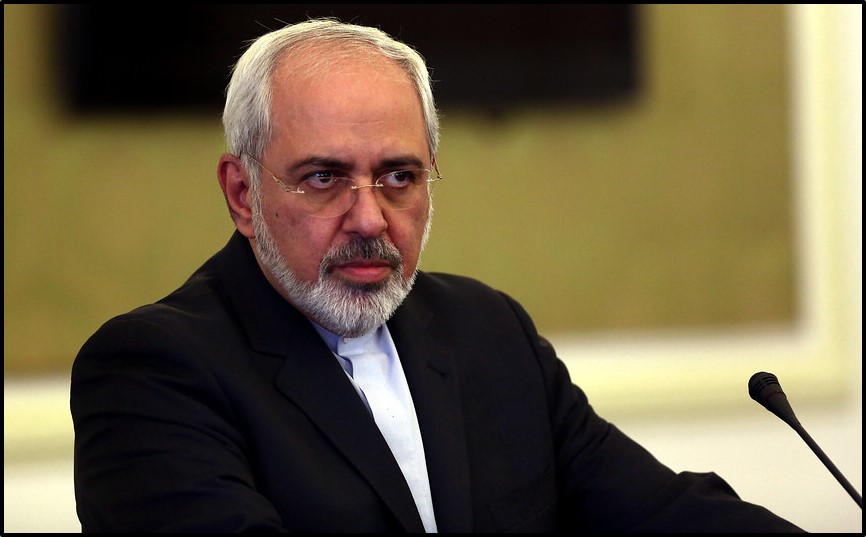In highly unusual criticism, former Foreign Minister Mohammad Javad Zarif (2013-2021) blasted the Iranian government for its inflexible and unrealistic policies that failed at diplomacy. “Throughout history, we have set our goals based on our desires and ignored our abilities,” Zarif said in an Instagram post on June 3. “National resources have been destroyed” and “development has not been achieved” because of “wishful thinking” and the rejection of diplomatic compromise.

The controversy deepened after Zarif’s lengthy discussion on Clubhouse on June 6, when he revealed that President Trump had invited him to meet at the White House for new talks. The invitation, conveyed by an unnamed American senator while Zarif was at a U.N. meeting in New York, was reportedly extended a year after Trump withdrew from the historic Iran nuclear deal in 2018. Zarif said he was “not allowed” to travel to Washington to reopen negotiations. On the social media platform, he also confirmed that Trump had wanted to accompany President Emmanuel Macron when he met Zarif on the outskirts of the G7 summit in Biarritz, France in 2019.
On Instagram, Zarif, who is now a professor at Tehran University, compared Iran’s foreign policy to the “formation of dense lines of cars behind every narrow tunnel,” without specifics. In his Clubhouse discussion, he blamed Iranian officials for creating a roadblock that prevented information about the Trump invitation—which he had communicated while in New York—from getting to Supreme Leader Ayatollah Ali Khamenei. “I relayed this message to Tehran and said, if I fail, I will accept punishment, but the message did not reach higher echelons and was rejected at lower levels.”
Zarif championed the 2015 nuclear accord and defended his track record under President Hassan Rouhani (2013-2021). “There’s no chance to achieve a deal better than the JCPOA,” he warned in his Clubhouse discussion with 40,000 listeners. “If the 2015 deal dies, no deal can meet the demands of the Western side.”
Iran’s former envoy charged that top U.S. officials, including Secretary of State Mike Pompeo and National Security Advisor John Bolton, had block his attempts at dealing with Trump. “I asked Vladimir Putin to directly relay Iran’s plan for the JCPOA [nuclear deal] to Trump, without Pompeo’s intervention, but Pompeo realized this and prevented it,” Zarif claimed.
The former diplomat’s Instagram post was a highly unusual critique of the government. Zarif has maintained a low profile since he left office after President Ebrahim Raisi, a hardliner, was elected in 2021. He was a pragmatist while working with his Western counterparts.
Since the nuclear deal was finalized in 2015, Zarif has been the frequent target of hardliners in Parliament and the press who thought he made too many concessions during two years of negotiations with the world’s six major powers. In 2018, Zarif quipped that he and Secretary of State John Kerry spent more time with each other than with their wives. Zarif’s investment in the JCPOA made him a target when the deal failed to deliver sufficient economic benefits and then began to unravel.
Pro-government media quickly lashed out at Zarif. Fars News Agency, an outlet linked to the Revolutionary Guards, warned that “history has shown us that the cost of compromise is much higher than intelligent and realistic resistance.” Tasnim, a wire service also linked to the IRGC, mocked Zarif for failing to understand the difference between “engagement” and “compromise.” A “compromiser” was a person who, “out of cowardice or personal gain, destroys the collective interests,” Tasnim argued in a separate article. Kayhan, which has close links to the supreme leader, charged that Zarif was committed to “gain the trust” of America and Europe but achieved “almost nothing” while in office.
The former foreign minister received some support for his comments despite broad backlash from conservative outlets. Former President Hassan Rouhani backed Zarif. “I testify that Zarif was and still is the establishment’s trustworthy messenger,” Rouhani posted on Telegram hours after the Clubhouse discussion.
Zarif’s comments raised speculation about his political aspirations. But he downplayed his remarks. “I don’t want to create a foundation for anything. Being in the Clubhouse is completely random and I don’t have a plan to support or oppose anyone,” he said. Iran is slated to hold parliamentary elections in early 2024 and a presidential election in 2025.
